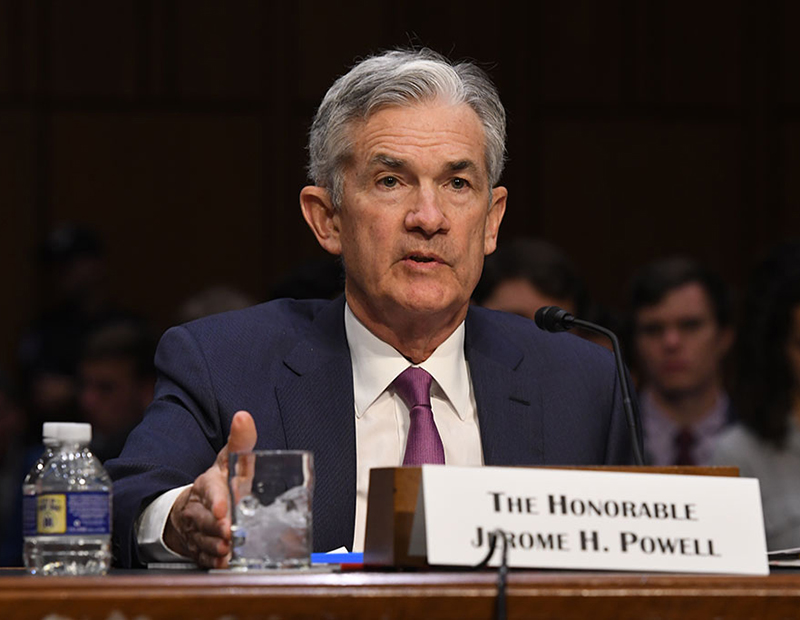Fed Cuts Interest Rates as Virus Impact Spreads
The Federal Reserve joined the real estate industry in bracing for the COVID-19 crisis.
The impact of COVID-19 has leaped to the top of the conversation in the U.S. real estate industry, as the novel coronavirus that originated in China begins to take a toll on businesses in the world’s largest economy.
The spreading virus outbreak has already disrupted the flow of goods into the U.S., hammered the global hotel industry, and forced the cancellation or postponement of major gatherings such as MIPIM, the massive real estate expo that was scheduled to take place in Cannes, France, next week.
READ ALSO: How Will Coronavirus Impact US Commercial Real Estate Sector?
On Tuesday, the U.S. Federal Reserve entered the picture by announcing that it was cutting short-term interest rates by 50 basis points to a target range between 1.0 and 1.25 percent—a surprise move ostensibly prompted by risks from the respiratory disease that has infected more than 90,000 people worldwide.
“The fundamentals of the U.S. economy remain strong,” the central bank said in a statement. “However, the coronavirus poses evolving risks to economic activity.” Elaborating during a news conference, Federal Reserve Chair Jerome Powell said that the easing in monetary policy was triggered by the virus’s material impact on the U.S. economic outlook.
The rate cut ahead of the bank’s next scheduled policy meeting on March 17-18 was the first such unscheduled action since the 2008 financial crisis. Industry executives and analysts are puzzling over the implications of the move, as well as the unfolding public health crisis more broadly.
Factory shutdown hits supply chain
In a note responding to the rate cut, CBRE argued that commercial real estate fundamentals are well-positioned but would be affected by the virus, with pain already being felt in the hospitality and construction sectors. The brokerage also pointed out that supply chain disruption may have an impact on manufacturing and distribution facilities.
Chinese factories are slowly coming back online, after virus containment efforts shut down manufacturing activity in large swaths of the country, but the ripple effects for U.S. logistics and industrial real estate may be just beginning. Scores of transpacific sailings to the ports of Los Angeles and Long Beach, Calif., have already been canceled in the first quarter.
“The point is, what’s the longevity of that disruption? And I think the jury’s out on that. We don’t know how long it will be before we begin to have the flow of goods return to normal,” Hugh F. Kelly, chair of the curriculum committee at Fordham University’s Real Estate Institute, noted to Commercial Property Executive.
“The first effect in terms of industrial and logistics was to shrink the flow through the supply chain—and that came on the heels of already some stress having to do with world trade generally,” he said, adding that industrial real estate prices could be affected. “If this is not a one-quarter, but a one-year event, then I think there are certainly worries.”
Kelly added: “A downward adjustment in price is not that bad if you’re not overleveraged, and we’re not really overleveraged at this point.”
Hotels, senior housing at risk
In the short term, the outlook seems darker for the hospitality sector, which is grappling with a plunge in business and leisure travel both in the U.S. and abroad. CBRE said it anticipates that the hotel industry could be “severely impacted” for up to six months, using the SARS pandemic of 2003 as a model.
Marriott International announced last week that revenue per available room in Greater China, where about 9 percent of the company’s guestrooms are located, had plunged nearly 90 percent year-over-year in February. Hilton Hotels & Resorts and Hyatt Hotels have also adjusted their earnings outlooks amid the slumping demand.
The hotel industry is bracing for further disruption as companies including Amazon curtail employee travel, and large events, such as Facebook’s F8 developer conference in San Francisco, get canceled. The MIPIM event was rescheduled to June 2-5 after companies from JLL to PGIM Real Estate pulled out amid virus concerns.
Senior housing and student housing could also be at risk, depending on how the situation unfolds, noted Willy Walker, chairman & CEO of commercial real estate finance firm Walker & Dunlop. “Clearly seniors is where people are very fearful that this thing really starts to spread,” he said. “If it gets into some of these seniors housing developments, I would think that many people would go and pull loved ones out and bring them back home, to the degree they can.”









You must be logged in to post a comment.